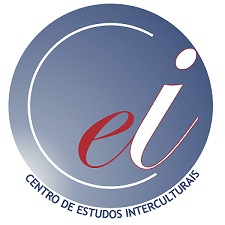MASTERCLASS
Britain in the Industrial and Post-Industrial Age: A Thematic Approach to Modernity
4 de Abril de 2016 | 18.30 | Laboratório 1, ISCAP
From an early-modern cultural matrix set up at the time of the European Renaissance, Britain actualised some potential cultural determinants with its industrial revolution, entailing profound changes in Britain, but also in Europe and in the world at large. To fathom the extent and the specificity of the new civilisation realised through the 19th and 20th centuries, one strategy consists of focusing on some themes illustrating the multidimensional upheaval produced by Britain. This is normally done through the analysis of various ‘questions’, i.e. the ‘social question’, the ‘woman question’, the ‘Irish question’, the ‘imperial question’, etc. articulating as it were the new paradigmatic situation Britain was faced with in the modern and post-modern ages. The objective ot this three-hour lesson is to provide a general introduction to Britain in the industrial and post-industrial age, and to show a few remarkable cultural patterns that clearly outlined Britain’s cultural shift from the time of the industrial revolution.
CONFERÊNCIA
British Social and Economic Culture since 1945
7 de Abril de 2016 | 15.00 | Sala de Leitura Informal da Biblioteca, ISCAP
The main objective of this conference is to provide one perspective on Britain’s interaction with globalisation. The chosen object is social and economic culture, something more relevant to cultural frameworks and mentalities than to political economy. Britain was perfectly adequate to the order of the world until the end of WWI. But after WWII, with the onset of decolonisation, Britain was forced to alter its former model and adapt to a new global environment. The conference takes stock of some recent developments in economic geography. The spatial awareness of territories has recently received much attention, in the wake of the current issue of Territory Innovation Models. This introduction tries to show how Britain’s regional policy and interaction with globalisation were profoundly intertwined over the period considered.
Nota Biográfica
Jean-Paul Rosaye is Full Professor in British studies and the history of ideas ; he is vice-director of the research laboratory “Textes et cultures”, joint-director of the team “études transculturelles”, and an elected member of the Scientific Research Board at the Université d’Artois (Northern France). He is the author of three books on the philosophical foundations of modernity and post-modernity (T. S. Eliot, poète-philosophe : essai de typologie génétique [2000], Autour de l’idéalisme britannique: recherches et réflexions méthodologiques sur l’histoire des idées en Grande-Bretagne [2010], F. H. Bradley et l’idéalisme britannique: les années de formation (1865-1876) [2012]), and three other books (as an editor) on transcultural studies (Les sens de l’occident [2006], Orient-Occident : Dialogue sur l’ailleurs [2011], Utopie: mémoire et imaginaire [forthcoming in May/June 2016]). His research also includes more than fifty articles, chapters, essays and conferences on the history of ideas and British civilisation studies. He is currently translating F. H. Bradley’s famous metaphysical treatise Appearance and Reality (Second Edition, 1897) into French. At the Université d’Artois, but also at the Catholic University in Lille, he teaches the history of ideas in Britain, particularly the British modern and post-modern periods.

